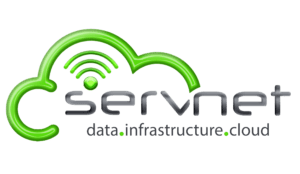Public Cloud Vs Private Cloud – Choose the Best for Your Business
The IT infrastructure market is rapidly evolving, and businesses are continuously on the lookout for more economical, flexible, and scalable options.
Cloud computing has transformed the way we think about IT infrastructure, and it has become one of the most sought-after solutions in the industry. When it comes to cloud computing, there are two options: private or public cloud. But which one is the best for your business? In this blog post, we will discuss the differences between public cloud and private cloud and help you determine which one is more suited to your needs.
1. Cost
One of the most significant differences between the two cloud models is the cost. Public cloud services are more affordable since they are shared by many users. This option is best suited for startups or small businesses that are trying to minimize their IT costs. On the other hand, private clouds are generally more expensive since they are dedicated to a single user or organization. They are perfect for businesses with high-security requirements or organizations that handle sensitive data.
2. Security
Security is a critical consideration for any business, and the cloud is no exception. Private clouds offer more robust security than public clouds because they are tailored to meet specific security requirements. Private clouds are ideal for businesses that store sensitive data or need to adhere to strict compliance regulations. Public clouds, while secure, are more prone to hacks or breaches since they are shared and offer less network isolation.
3. Scalability
Scalability is another crucial factor in deciding between public and private clouds. Public clouds are highly scalable and flexible, and they can easily increase or decrease computing resources according to the organization’s needs. This option is perfect for businesses that experience rapid growth or changes in demand. Private clouds, while scalable, may take more time and resources to adjust to changes in demand. However, private clouds offer flexibility and customization options which can make them the better choice for businesses with specific infrastructure needs.
4. Control
Control is one of the most significant differences between public and private cloud models. Private clouds provide more control and customization options, giving organizations greater freedom to modify the infrastructure to meet specific business needs. Public clouds offer less control since the infrastructure is shared by many users. This option is perfect for businesses that don’t have the in-house resources to manage and maintain a private cloud, and instead, prefer to use already-established cloud platforms for their IT needs.
5. Connectivity
Connectivity is an often-overlooked aspect when deciding between public and private cloud models. Public clouds offer a more extensive range of connectivity options since they are managed by larger cloud providers who have established partnerships with internet service providers. Private clouds offer a more straightforward and standardized connectivity experience, requiring a reliable internet connection and dedicated infrastructure to achieve optimal performance.
Conclusion
In summary, the public cloud option is the best for businesses that want a cost-effective, scalable, and flexible infrastructure. Private clouds are more expensive than public clouds, but they offer more robust security, greater control, customization options, and a standardized connectivity experience. Ultimately, the final decision should be based on the organization’s specific needs and requirements. As always, proper research and careful consideration should be taken before making any significant IT infrastructure decisions.
Visit our Cloud Solutions page for more information










